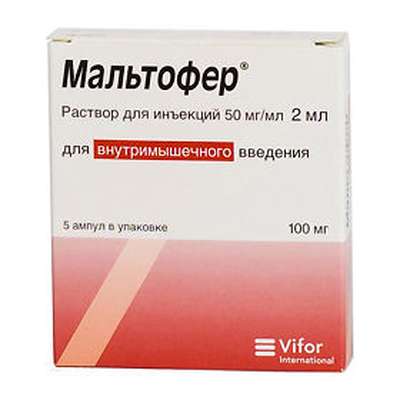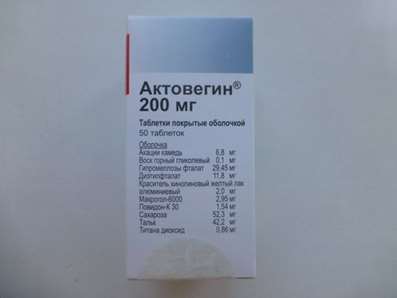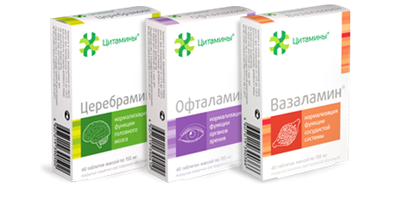Woe from Wit
16 Dec 2016
On October 10, the 25th time celebrated World Mental Health Day. In Russia, this tradition of 15 years. According to premature mortality and disability neuropsychiatric diseases exceed cardiovascular disease and cancer combined.
According to WHO estimates, neuropsychiatric disorders account for the largest percentage of existing diseases in the world. Today, 47.5 million people suffer from dementia, 26 million - schizophrenia. Experts predict that by 2030, severe mood disorders, especially depression, become the main cause of disability in the world.
The causal disorders
It is believed that the major mental illnesses without regard to addictions (alcoholism and drug addiction) in the world suffers every 5th person becomes disabled every 20 minutes. In 50% of cases start in adolescence, before the age of 14; 75% - 24 years. "Suffice it to hold a large-scale survey of a random audience, to make sure: most people are afraid not even cancer, and mental illness.
Modern life, rapid and intense, is not conducive to the maintenance of people's mental health, so it is important to inform the public about the causes and manifestations of diseases such as depression, schizophrenia, bipolar and anxiety disorders, as well as the methods and ways of their prevention and treatment.
However, the problem lies not only in relieving symptoms, but also the necessity of long-term therapy, whereby in most cases prevent further attacks of the disease. For the majority of progressive mental disorders until full recovery is unfortunately impossible. But even a slight increase in the duration of remission (bright intervals between episodes of the disease) can significantly alleviate the social functioning of patients and slow the progression of the disease.
Experts say: the main differences between existing modern psychotropic drugs mainly consist in the safety and tolerability, ie their performance is about the same, but individual reactions to them can be very different. Therefore, so important to search for new drugs, new molecular targets pathogenic, including genomic.
The problem is that the treatment of mental patients is somewhat different from the treatment of somatic diseases as mental illness is always related not only to biological factors, but also psychological and social. It is necessary to consider all three of these components, that is treated and the biological disorders, trying to influence the pathogenesis of the disease, to penetrate and to deal with the psychological factors, which in some cases lead to the disease and thus may interfere with the action of our medicines and, finally, how -That way affect the social factors, which are also often the cause of these diseases.
But to make it very difficult. "Although the underlying mechanisms of action studied, yet we still do not fully understand how these funds operate and why - for example, the effect does not appear immediately, but only after three to six weeks Why first, even adequately assigned course work only. 50% of patients? Moreover, 30% is generated therapeutic resistance, when it is not operating any one of the drugs, including the most modern. With these products, we more or less learned to arrest the acute manifestations of mental illness, such as motor stimulation, violations behavior, delusions and hallucinations, expressed emotional (affective) reactions. "
Against suicide
According to experts, the most difficult in the treatment of such diseases is the inability to prevent them, due to the fact that the risk factors are virtually unknown. Therefore the main task of psychiatrists today is secondary prevention. In XX century, innovation became perfect by Paul Janssen haloperidol and risperidone (many experts believe that this scholar was to receive the Nobel Prize for the development of antipsychotic pharmacotherapy). Recently, on the basis of risperidone several new drugs and dosage forms.
New medicines must not only be effective and safe, but also convenient to use, since one of the major problems is the weak commitment to this group of patients treated. Doctors should be able to vary the treatment, taking into account the individual characteristics of the patients, and it is necessary to start as early as possible to increase the periods of remission and prevent the disease go into the chronic stage. Such approaches have been laid, for example, based on our research programs for treatment of Alzheimer's disease. It includes developments in anti-amyloid immunotherapy designed to intercept disease. In addition, the company has developed a new method for treatment of intractable forms of depression with the help of modern drugs. I think that the most promising area of treatment in psychiatry - a fast antidepressant, which will enable to treat deep depression accompanied by suicidal behavior, a few hours rather than weeks. This will be a major breakthrough. I am very optimistic, I'm going to save lives, because in the United States more people committed suicide than died from the two types of cancer. It is therefore extremely important that we have drugs that are within an hour directly to the emergency room will be able to help the patient to abandon the attempt of suicide.
Modern medicine is focused on the search for a drug that would turn out to be symptomatic, and disease-modifying effect. In the struggle with the consequences of dementia are now annually consumes nearly 1% of total world GDP (more than $ 800 billion). Above this are large pharmaceutical companies and research centers. In the XXI century there were about 500 clinical trials, but the positive results in large-scale studies have yet been received. Last innovation is FDA approved (December 2014) - combined medication Namzaric, (a trademark owned by Merz Pharma). In Russia, it has not yet been registered.
Mental disorders - an area in which the number of unmet medical need is great enough. Especially when it comes to heavy, disabling diseases, the economic burden of which increases from year to year. We estimate that in Russia more than 2 million people suffer only manic-depressive psychosis and schizophrenia. Close these people have largely independently solve family problems, often find themselves beyond the comprehension of society. And it's much harder than physical illness. The symptoms of physical illness can not harm the emotional climate in the family, without prejudice to concepts such as "love" and "understanding." But the negative symptoms of schizophrenia hit the most important - the love of the patient to their family members. The solution of the situation lies in the traditional two dimensions: in the information work with the population and in the introduction into clinical practice of modern methods of treatment, which will allow patients to retain the ability to work to improve the quality of life. Last year, the development of our scientists - atypical antipsychotic kariprazin - was registered by FDA. In Russia, too, conducted research involving 20 clinics, and despite the differences in the neurobiological features of the brain of representatives of different races and ethnic groups, kariprazin showed very good results.
Pharmacotherapy of neuropsychiatric diseases in the last three or four decades has stepped far forward. Development occurs due to fundamental brain research (for example, thanks to the discovery of new receptors and human behavior patterns), and thanks to the improvement of the previously developed molecules. At the same time, doctors are now successfully used drugs that were used in the middle of the last century, such as Phenotropil, Phenazepamum, Pantocalcin, Teraligen, Aminazinum, Closastene, Bezak. They are popular all over the world, including developed countries, where health care in general and medical research in particular laid a big budget. Release formulations with such a long history due to the fact that these molecules have confirmed the high efficacy and safety profile of long-term practical applications (like aspirin).
Demand for charlatans
As for the drug provision of the mentally ill in Russia, but now we are protected by health insurance basically only people with disabilities, people with schizophrenia and epilepsy, which allows them to receive free expensive drugs for long-term treatment in clinics. Unfortunately, the rest of the categories of diseases, particularly affective disorders, this privilege does not apply. Although patients with depression and bipolar disorder need to be exactly the same long-term outpatient preventive treatment, as well as patients with schizophrenia. Moreover, according to experts, they are treated more favorably in terms of social and economic.
At the same time there is a washout cheap drugs, particularly domestic production. For example, lithium carbonate, whose manufacturing process is very simple, is not profitable to produce due to the cheapness of the process. But the lithium salt is very effective for the treatment of bipolar disorder. The same happens with the other long-synthesized drug, major neuroleptic reserve clozapine. It has been used successfully for the treatment of drug-resistant state in schizophrenia. Nevertheless, domestic manufacturers refuse to deliver on the benefits, because it provided a low price does not justify the cost of production.
Despite the increase in the prevalence of disease is now "in order to save" the country is reducing psychological services. Vacant niche occupied by private clinics, where the level of qualification of specialists sometimes in doubt, and the so-called representatives of traditional medicine, and simply - charlatans, which parasitize human distress.

 Cart
Cart





